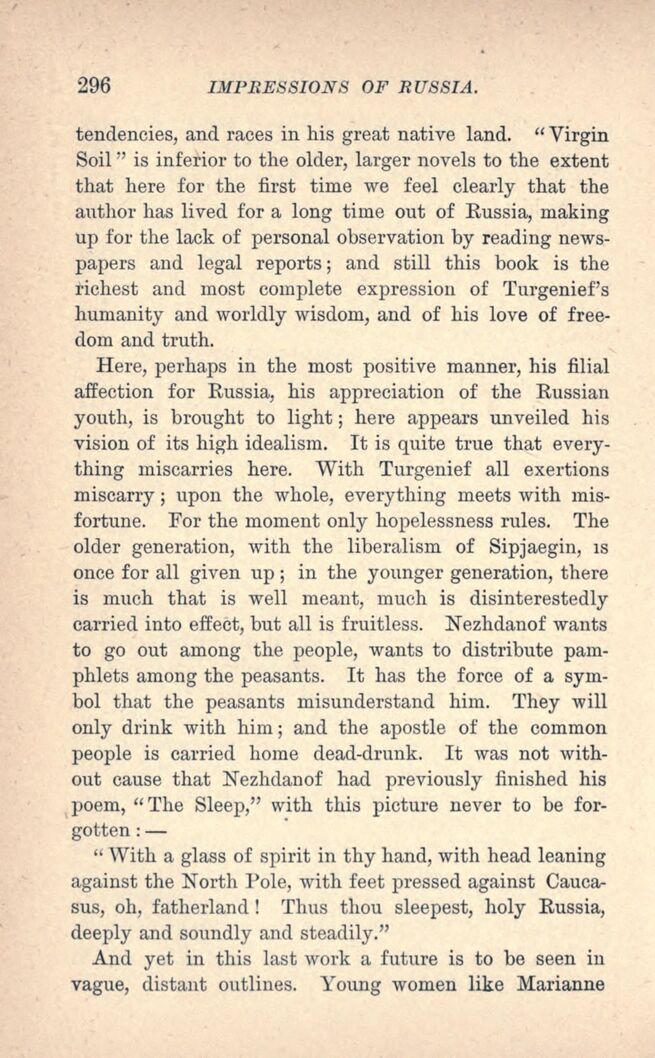
Full resolution (JPEG) - On this page / på denna sida - Impressions of Russian Literature - V

<< prev. page << föreg. sida << >> nästa sida >> next page >>
Below is the raw OCR text
from the above scanned image.
Do you see an error? Proofread the page now!
Här nedan syns maskintolkade texten från faksimilbilden ovan.
Ser du något fel? Korrekturläs sidan nu!
This page has been proofread at least once.
(diff)
(history)
Denna sida har korrekturlästs minst en gång.
(skillnad)
(historik)
tendencies, and races in his great native land. “Virgin
Soil” is inferior to the older, larger novels to the extent
that here for the first time we feel clearly that the
author has lived for a long time out of Russia, making
up for the lack of personal observation by reading
newspapers and legal reports; and still this book is the
richest and most complete expression of Turgenief’s
humanity and worldly wisdom, and of his love of
freedom and truth.
Here, perhaps in the most positive manner, his filial
affection for Russia, his appreciation of the Russian
youth, is brought to light; here appears unveiled his
vision of its high idealism. It is quite true that
everything miscarries here. With Turgenief all exertions
miscarry; upon the whole, everything meets with
misfortune. For the moment only hopelessness rules. The
older generation, with the liberalism of Sipjaegin, is
once for all given up; in the younger generation, there
is much that is well meant, much is disinterestedly
carried into effect, but all is fruitless. Nezhdanof wants
to go out among the people, wants to distribute
pamphlets among the peasants. It has the force of a
symbol that the peasants misunderstand him. They will
only drink with him; and the apostle of the common
people is carried home dead-drunk. It was not
without cause that Nezhdanof had previously finished his
poem, “The Sleep,” with this picture never to be
forgotten : —
“With a glass of spirit in thy hand, with head leaning
against the North Pole, with feet pressed against
Caucasus, oh, fatherland! Thus thou sleepest, holy Russia,
deeply and soundly and steadily.”
And yet in this last work a future is to be seen in
vague, distant outlines. Young women like Marianne
<< prev. page << föreg. sida << >> nästa sida >> next page >>